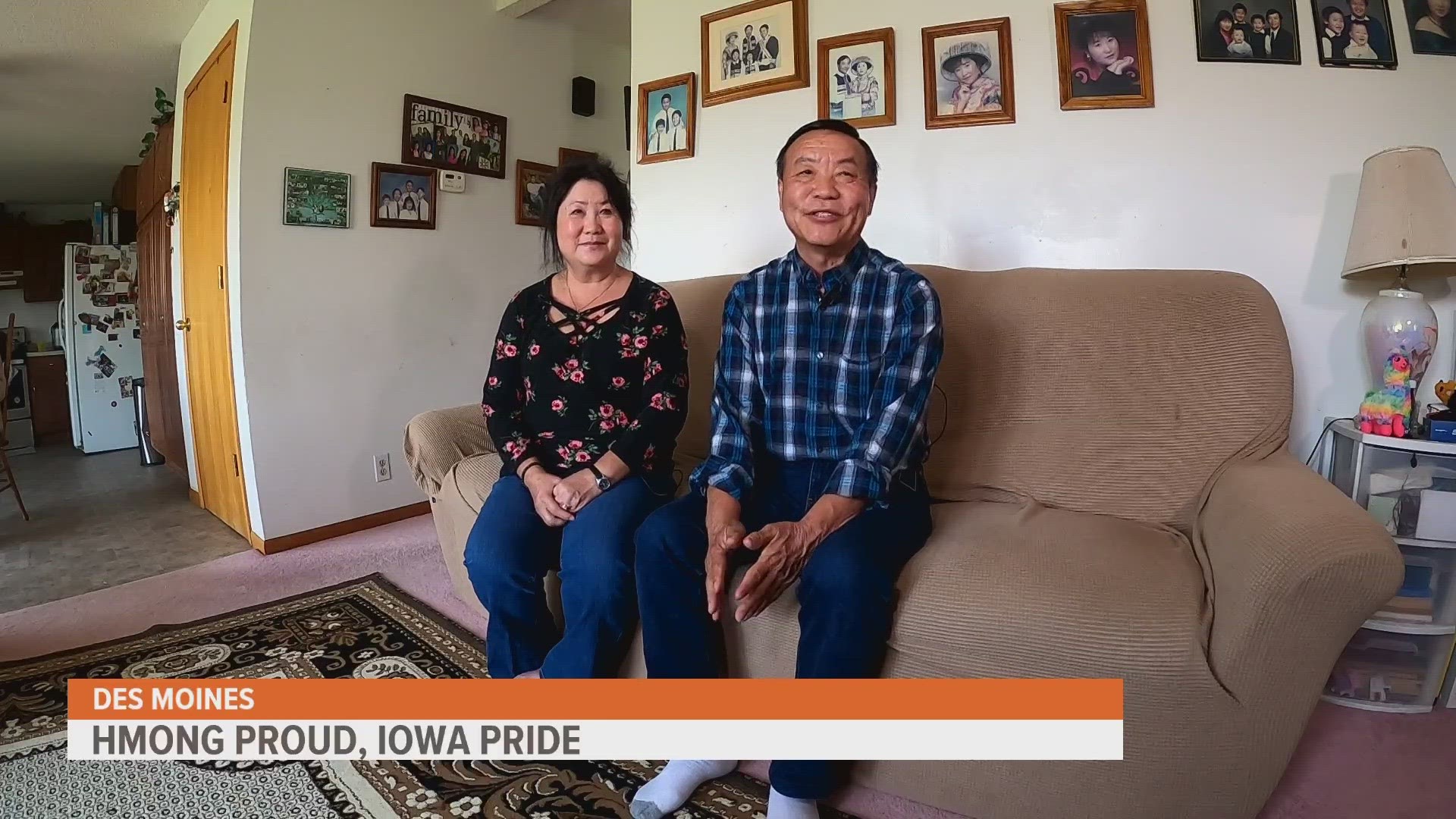DES MOINES, Iowa — Navigating a new world as a refugee can be challenging. Everything is new: culture, people, language, work and sometimes climate.
For one Hmong refugee family in Des Moines, this is now home. They've even become part of perhaps one of the most known Iowa traditions: the Downtown Farmers' Market.
The "Iowa Nice" we're all so used to is right here at the corner of 4th and Court.
Lee Khoua and Mao Sayaxang don't miss a beat when it comes to making sure customers are served at their stand, Mao's Homemade Eggrolls.
"I come here every time I come [to the market]," said customer Amber Hensley.
Usually, Lee Khoua says, the stand is busy between 8 and 11 a.m.
Nanette Hall is used to seeing long lines. She's been a loyal customer of Mao's Homemade Eggrolls since the 90's.
"It shows what Iowa is about – family," Hall said. "You work on a product. You work on your family business and you don't just sway back and forth between the winds."
Choua Sayaxang, Lee Khoua and Mao's oldest son, has helped introduce Hmong eggrolls and culture to Iowans alongside his parents for nearly three decades.
Now, Mao's Homemade Eggrolls is a mainstay at the farmers' market and the life's work of two ambitious Hmong refugees.
The Sayaxang family is one of the first Hmong families that resettled in Iowa after the Vietnam War, coming to the U.S. in 1976.
"All of the Hmong people who live in Des Moines, Iowa, we work hard," Lee Khoua said. "Every mother and father works. During the summer, the days are long so we work and get home around three or four o'clock, and at night around eight or nine o'clock, we have to garden and such to go sell."
The Downtown Des Moines Farmers' Market became an avenue for the Sayaxangs to have a side-gig, on top of their full-time jobs.
"We thought that that would be extra income to help raie our kids too and save some moeny for them to go to school," Mao said.
"It definitely means a lot knowing that they primarily did this for us so that we can save money going through college," Choua added.
Like his parents, Choua and his brothers are now dedicated to the business, too.
It's their family's story, one of a proud Hmong family and one of proud Iowans.
"This is our way of getting the family together to work on something and work together and see each other for about five to six hours," Choua said.
Throughout the years, as the Sayaxangs grew as a family and as a business, the Hmong community in Des Moines slowly dwindled. Families moved to other states.
Even then, Lee Khoua and Mao stayed put.
"We decided that we didn't want to move," Mao said. "This is our home."
This isn't a surprise for DMACC history professor Matthew Walsh.
"We were the only state to resettle refugees," Walsh said. "There were so many hurdles to overcome, so for a Hmong family to find roots here and to succeed, it is very impressive and it is kind of like a revitalization."
A revitalization crucial to Iowa's culture.
"We see such a broad audience every week so it's great that we're able to pull in so many groups in our event," said Megan Renkel, the farmers' market marketing manager.
As Mao's Homemade Eggrolls approach 30 years in the business, their recipe remains the same: Hmong proud, Iowa pride.
"Our establishment here at the Downtown Farmers' Market helped me and my brothers realize that we can do something her in the state of Iowa, and personally, that's motivated me to stay here," Choua said.
Lee Khoua and Mao hope to leave the business to the family.
But for now, they're on a roll.
"As long as both of us still have the energy to do it, we'll keep doing it," Mao said.
About 11% of vendors at the Downtown Des Moines Farmers' Market are AAPI-owned and operated.
The Sayaxangs have other relatives who have booths at the market, along with several other Hmong families.
They say the Hmong community in Iowa is still vibrant, growing and will be here for generations.

